Witness Community Highlights

The November 2018 issue of Witness Community Highlights is now available online. This issue includes three articles: "A New Season for Sea Ice and Walrus" provides news of the Sea Ice for Walrus program's investigation of how low Arctic ice conditions affect walrus migration; "Co-Production of Knowledge and Multi-Level Governmental Collaboration in A Rapidly Changing Arctic" discusses efforts to address the impact that rapid climate change has on Alaska Native communities; and "Unique Fellowship Program Promotes Community Interaction" illustrates the unique way that Sitka Sound Science Center's Scientist in Residency Fellowship program facilitates community engagement activities for polar scientists.
ARCUS at the AGU Fall Meeting
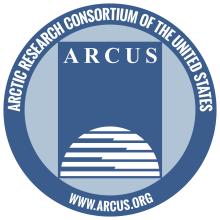
We are gearing up for a busy week at the upcoming AGU Fall Meeting in Washington, D.C.! ARCUS staff and board members hope to see many of our colleagues and friends—and meet new ones—at the ARCUS-related events at AGU this year, including an Arctic Funders “Meet and Greet”; the ARCUS Annual Meeting; our open Arctic Community Reception; several sessions, talks, and posters; and hosting the Community Meeting Room.
Witness Community Highlights

The October 2018 issue of Witness Community Highlights is now available online. This issue includes two articles: “ICESat-2 Launches to Measure Earth's Ice” provides news from NASA about the satellite launch and its capabilities; and “2018 Arctic Sea Ice Minimum Extent Reached in Late September,” which includes highlights from the 2018 Sea Ice Outlook Interim Post-Season Report, published on 11 October.
A Call to Action: Sustaining Arctic Observing Networks
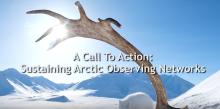
SEARCH partnered with the Wildlife Conservation Society and the University of Alaska Fairbanks' International Arctic Research Center and the Department of Theatre and Film to produce a video call for action featured at the Second Arctic Science Ministerial held in Berlin in October 2018. The video featured hunters and community leaders from St. Lawrence Island in the Bering Sea and SEARCH scientists making the case for Arctic nations to "Coordinate and Sustain Observations." The video highlighted the urgent need for sustained, long-term observations that include indigenous knowledge, community-based observations, and citizen science.
The increasing rate of Arctic change: how should the research community keep up? - Session II
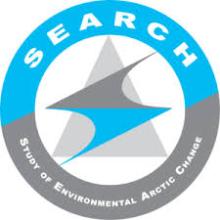
The Study of Environmental Arctic Change (SEARCH) is engaging past, present, and future members of its community in a broad conversation about how SEARCH might advance synthesis and engagement in the coming decades? What coordination of research and communication is needed?
Date: 15 November 2018
Time: 10:00 am (AK) / 11:00 am (PT) / 12:00 pm (MT) / 1:00 pm (CT) / 2:00 pm (ET)
Format: video conference (Zoom)
Interested in participating? Register here
SEARCH Background:
Recent Activities and Questions
Vision and Mission
Organization
Products:
Arctic Answers - science for policy briefs
Arctic Futures 2050 conference
Other products
For more information: Brendan Kelly, SEARCH Executive Director (bpkelly [at] alaska.edu)
ARCUS Board of Directors
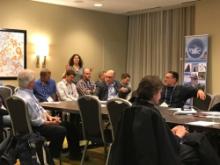
The Arctic Research Consortium of the U.S. (ARCUS) announces a call for nominations for our 2018 Board of Directors election. There are a possible four seats up for election in a vote of the ARCUS membership expected to take place in December 2018.
We seek nominations of candidates with enthusiasm and time to dedicate to ARCUS, who are willing and able to help ARCUS fulfill its vision and mission and achieve its strategic goals. We particularly invite nominations of individuals with experience in and connections to industry, foundations, or Arctic Indigenous groups. Nominations are due Monday, 12 November 2018.
Arctic Research Seminar Series with Karin Buhmann
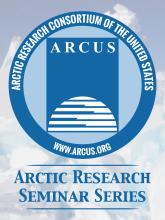
ARCUS invites registration for our next Arctic Research Seminar featuring Karin Buhmann (Copenhagen Business School). This seminar, titled Responsible Investments in Arctic Mining: Implications of Chinese Policies, will be held Tuesday, 30 October 2018 from 12:00-1:00 p.m. EDT in the ARCUS D.C. office at 1201 New York Avenue, NW Washington D.C. A live webinar is also available to those unable to attend in person.
SEARCH at AGU Fall Meeting
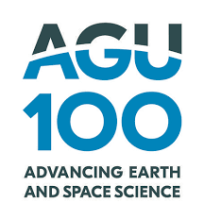
The Study of Environmental Arctic Change (SEARCH) program will be active at the American Geophysical Union (AGU) Fall Meeting, to be held 10-14 December 2018 in Washington, D.C.. Please join us for the SEARCH Town Hall "Where Does Arctic Research and SEARCH Go Next?" on Friday, 14 December 12:30-1:30pm. We also invite you to connect with SEARCH affiliates at one or more of the many sessions, presentations, and side-events we have planned.
Sea Ice Outlook Interim Report

The Interim Post-Season Report for 2018 Sea Ice Outlook (SIO) is now available online. The goal of the SIO is to improve sea ice prediction on seasonal time-scales. This interim report is intended as a quick post-season update that summarizes how the outlooks did in comparison to the observed minimum extent. The September monthly averaged sea ice extent was 4.71 million square kilometers, based on the National Snow and Ice Data Center (NSIDC) Sea Ice Index. The median extent of the 39 Outlook contributions for June, July, and August were 4.60, 4.70, and 4.57 million square kilometers, respectively. A full post-season report in January 2019 will include an in-depth analysis of factors impacting sea ice this season; further discussion about the outlooks; comments on regional observations, predicted spatial fields, Antarctic contributions; and a summary from the Sea Ice Drift Forecast Experiment. This report is the product of the Sea Ice Prediction Network–Phase 2 (SIPN2) effort.
2018 Projected Freeze-up of Chukchi Sea Released
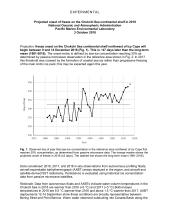
The National Oceanic and Atmospheric Administration, Pacific Marine Environmental Laboratory, has released a 2018 projected onset of sea ice freeze-up on the Chukchi Sea continental shelf. Projection: Freeze onset on the Chukchi Sea continental shelf northwest of Icy Cape will begin the second week of December 2018. This is approximately 47 days later than the long-term mean (1981-2016).
Witness Community Highlights

The September 2018 issue of Witness Community Highlights is now available online. This issue includes two articles: Highlights of the Arctic Data Center’s recently established Data Highlights page, which provides insights directly from the researchers, including how their data might be applied to other questions in support of Arctic research; and NSF announcements of new Program Directors in the Arctic Sciences Section and new measures to protect the research community from harassment.
Call for Researcher Applications to Host a PolarTREC Teacher
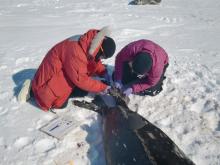
PolarTREC (Teachers and Researchers Exploring and Collaborating) is currently accepting applications from researchers for teacher research experiences. Researchers are invited to submit an application to host a PolarTREC teacher in the 2019 Arctic and/or the 2019-2020 Antarctic field seasons. Funding is pending for PolarTREC during the 2019-20 field seasons. ARCUS will keep researcher applicants informed of our funding status. If funding is secured, final matches should be made by January 2019. PolarTREC researchers must be at U.S. institutions. Applications from researchers on National Science Foundation (NSF) funded projects will receive priority in the selection process. Researchers should have secured funding for their research project prior to applying.
The increasing second derivative of Arctic change: how should the research community keep up?
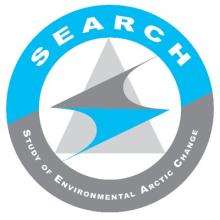
The Study of Environmental Arctic Change (SEARCH) seeks a broad conversation with past, present, and future members of its community on how SEARCH might serve to advance synthesis and engagement in the coming decades? What coordination of research and communication is needed?
Date: 5 October 2018
Time: 9:30 am (AK) / 10:30 am (Pac) / 11:30 am (Mntn) / 12:30 pm (Cntrl) / 1:30 pm (Eastern)
Format: video conference (Zoom)
Interested in participating? Register at: https://bit.ly/2NtXiEL
SEARCH Background:
Vision and Mission
Organization
Products:
Arctic Answers - science for policy briefs
Arctic Futures 2050 conference
Other products
For more information: Brendan Kelly, SEARCH Executive Director (bpkelly [at] alaska.edu)
Arctic Research Seminar Series with Jacqueline M. Grebmeier
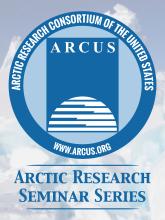
ARCUS invites registration for our next Arctic Research Seminar featuring Jacqueline M. Grebmeier (Chesapeake Biological Laboratory, University of Maryland Center for Environmental Science). This seminar, titled “The Pacific Arctic: An Ecosystem in Transition,” will be held Friday, 21 September 2018 from 12:00-1:00 p.m. ET in the ARCUS D.C. office at 1201 New York Avenue, NW Washington D.C. A live webinar is also available to those unable to attend in person.
Help Build a Database of Carbon Flux Measurements
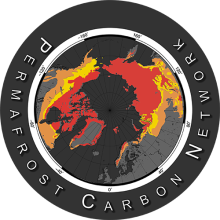
As part of the Permafrost Carbon Network's larger effort on 'Reconciling historical and contemporary trends in terrestrial carbon exchange of the northern permafrost-zone', we are initiating a community-effort to develop a comprehensive and annually updated database of high-latitude permafrost zone carbon flux measurements. This database, which builds on a breakout activity from the annual Permafrost Carbon Network meeting in 2017 and previous flux syntheses, could help to track temporal trends in Net Ecosystem Exchange (NEE) and benchmark ecosystem models. We invite you to be a part of this activity.
We seek initial data contributions by September 30th. If you are interested in contributing or have additional questions, please contact marguerite.mauritz [at] nau.edu (Marguerite Mauritz) or ted.schuur [at] nau.edu (Ted Schuur).
Arctic Answers Briefs

Browse SEARCH's Arctic Answers resources, where policy-relevant questions are answered in 1-2 page briefs written by experts, peer-reviewed, and posted in Arctic Answers. Each brief is the top of a "knowledge pyramid" supported by scientific literature organized in underlying tiers of increasing detail. Questions that are addressed include "Can extreme Arctic climate change be avoided with cost effective mitigation?", "How fast is sea level rising?", "How is climate change affecting subsistence (or traditional) fisheries in the high Arctic?" and many more.
Sea Ice Prediction Network
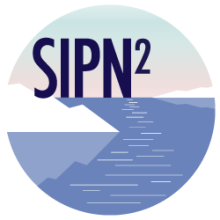
Phase 2 (SIPN2) announces registration for an open webinar on Tuesday, 11 September 9:00 am AK for “An Overview of MOSAiC - The Multidisciplinary Drifting Observatory for the Study of Arctic Climate” with presenter Don Perovich, Dartmouth College. The presentation will provide an overview of MOSAiC, with special attention on the sea ice program.
2019-2020 PolarTREC Application Period Open!
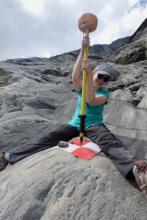
We are happy to announce that the 2019-2020 PolarTREC applications for teachers, informal educators, and researchers to apply to the program is open! Applications are due Monday, 24 September 2018 by 5PM ADT. An informational webinar will be hosted on Wednesday, 29 August 2018. More information about the program and how to apply can be found here.
Witness the Arctic
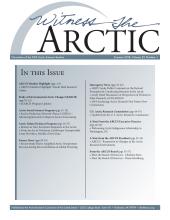
The Summer 2018 issue of Witness the Arctic is now published online. This issue includes a call for public comment on the Revised Principles for Conducting Research in the Arctic; news from a recent study indicating an increase in amplified Arctic temperatures; news of the recently developed use of remote sensing to study beaver encroachment in Arctic tundra; news about the EarthScope Transportable Array; updates from the SEARCH program, USARC, the Sea Ice Prediction Network–Phase 2, the women in polar research panel discussion during POLAR2018, and the 2018 Anchorage Arctic Research Day; comments from ARCUS board members, Board President Audrey Taylor, and Executive Director Bob Rich; and a highlight of ARCUS member institution, the Woods Hole Research Center.
2018 August Sea Ice Outlook Report Available

The August report for the 2018 Sea Ice Outlook (SIO) is now available online. The goal of the SIO is to improve sea ice prediction on seasonal time-scales. For the August report, 39 contributions were received that include pan-Arctic predictions. Of those contributions, 10 also included pan-Antarctic predictions and 11 included predictions for Alaskan waters. For the Arctic, the median August Outlook value for a September 2018 sea ice extent projection is 4.6 million square kilometers.
The August report includes an overview of projections of total September Arctic ice extent; a section about predicted spatial fields with discussion on sea ice probability (SIP) and the first ice-free day (IFD) from a number of dynamical models; a section on current conditions and atmospheric conditions; a section discussing regional sea ice conditions; and a section discussing Antarctic sea ice extent forecasts.
This report is the product of the Sea Ice Prediction Network–Phase 2 (SIPN2) effort.
Upcoming PolarConnect Live Events

Please join us for two live events in August about research in the Arctic and in the mountains of Switzerland!
Monday, 13 August 2018 at 9:30am AKDT – PolarTREC teacher Svea Anderson and University of Alaska researcher Donie Bret-Harte will discuss their research live from Toolik Field Station in Alaska looking at Shrubs, Snow and Nitrogen in the Arctic.
Thursday, 23 August 2018 at 7:00am AKDT – PolarTREC teacher Lauren Neitzke Adamo along with researchers Dr. Neal Iverson and Dr. Luke Zoet will be live from the mountains of Switzerland discussing their work on Sliding Glaciers.
Review the Draft "Principals for Conducting Research in the Arctic"
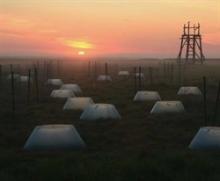
The Interagency Arctic Research Policy Committee (IARPC) is seeking comment from the public on newly revised Principles for Conducting Research in the Arctic by September 4, 2018. IARPC is interested in all comments on the Principles document, including the core principles and sub-bullets describing the approaches that researchers are encouraged to adopt across all stages of research.
Call for Sea Ice Outlook Contributions
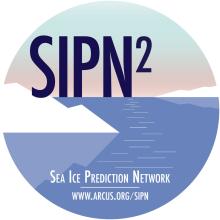
The Sea Ice Prediction Network–Phase 2 (SIPN2) announces the call for contributions for the 2018 Sea Ice Outlook August report. The Sea Ice Outlook provides an open process for those interested in Arctic sea ice to share ideas. The monthly reports contain a variety of perspectives—from advanced numerical models to qualitative perspectives from citizen scientists. Submissions are due Monday, 13 August 2018.
Understanding High Latitude Methane In a Warming Climate
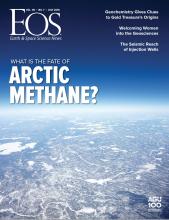
SEARCH brought together international experts to estimate how much methane might be released from thawing permafrost in the Arctic. The current state of knowledge and on-going efforts to improve our knowledge are detailed in a project update from EOS magazine. The SEARCH workshop was funded by the National Science Foundation, the National Aeronautics and Space Administration, the U.S. Geological Survey, and the U.S. Arctic Research Commission.
2018 July Sea Ice Outlook Report Available

The July report for the 2018 Sea Ice Outlook (SIO) is now available online. The goal of the SIO is to improve sea ice prediction on seasonal time-scales. For the July report, 39 contributions were received that include pan-Arctic predictions. Of those contributions, 9 also included pan-Antarctic predictions and 11 included predictions for Alaskan waters. For the Arctic, the median July Outlook value for a September 2018 sea ice extent projection is 4.7 million square kilometers.
The July report includes an overview of projections of total September Arctic ice extent; a section about predicted spatial fields with discussion on sea ice probability (SIP) and the first ice-free day (IFD) from a number of dynamical models; a section on current conditions and atmospheric conditions; a section discussing regional sea ice conditions; and a section discussing Antarctic sea ice extent forecasts.
The July report is the product of the Sea Ice Prediction Network–Phase 2 (SIPN2) effort. The goal of the previous SIPN1 was to enhance scientific discussion on the physics that control summer sea ice extents. In SIPN2 there is a further analysis of quantitatively comparing model forecast output.
